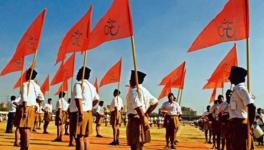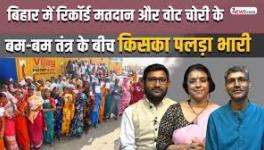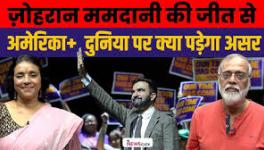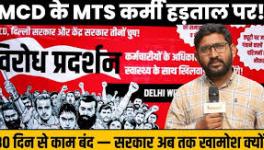BJP’s Nationalism and Electoral Chessboard
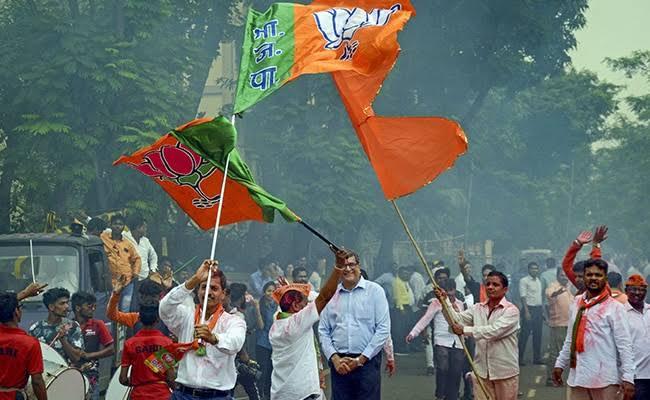
Representational image.
Bharatiya Janata Party (BJP) is a party with a difference in more ways than one. It is the major electoral formation which, contrary to the values of Indian Constitution of secular, democratic nation, holds that India is a Hindu nation. It is the only party which is the electoral wing of Rashtriya Swayamsevak Sangh (RSS), the organisation which formed and is pursuing Hindu nationalism. BJP also has the distinction of gaining electoral strength parallelly with the rise of sectarian violence. It is also the one which has kept emotive, divisive issues and issues related to its own brand of nationalism at the core of its politics. Its massive victory in the 2014 Lok Sabha elections and then again in the 2019 LS elections, gave the impression that it is invincible. The party president, Amit Shah, even declared that BJP will rule the country for next 50 years. So, when this projection—backed up by the commercial media—that it will walk away with massive victories in Maharashtra and Haryana Assembly elections of 2019 bit the dust, it calls for a new thinking about its electoral prospects.
As the poll results unfolded, the party fell short of simple majority in Haryana and had to ally with Jannayak Janta Party (JJP) of Dushyant Chautala to form the government in the state. Meanwhile, in Maharashtra, even though it emerged as the single largest party, it was nowhere close to the simple majority. Consequentially, Shiv Sena, its electoral ally of years, is trying for a hard bargain this time. The usual boasting which has followed earlier victories of BJP is nowhere in sight and some commentators have termed it as a moral defeat for this party. The claim of its invincibility is lying shattered and the opposition parties which were feeling demoralised seem to have been infused with hope yet again.
BJP was formed from the elements of Bharatiya Jana Sangh with the proclamation of Gandhian Socialism in 1980s. Soon, it changed the track and took up the issue of Ram Temple. The party was at the helm of affairs of the whole agitation around the temple and the rath yatras that led to communal violence and polarisation of society. This is what gave a fillip to BJP which then gained from strength to strength. Mostly, it kept taking up issues related to communal identity.
Also read: How Corporate-Hindutva Axis is Assaulting India’s Federalism
Having tasted power in 1996 for 13 days and then for 13 months in 1998, it floated the National Democratic Alliance. The alliance consisted of power hungry leaders falling to the bait of a common minimum program, which remained on paper as BJP asserted the Hindutva agenda through and through. The Hindutva agenda constituted of the demand for Uniform Civil Code, abolition of Article 370 and construction of Ram Temple. The major strength of BJP so far was the solid support of RSS volunteers, who—trained in the ideology of Hindu Rashtra—were seeing political power as another means to enhance their agenda. Post the Gujarat carnage, another solid support for BJP emerged from the corporate sector. Modi, in the aftermath of Gujarat carnage, encouraged the corporates, giving them all facilities in the name of Vikas (development). The corporate sector also came to acquire total control of a large section of the media. The third aspect which enhanced the power of BJP was its shrewd support to the Jan Lokpal Bill. Propping up Anna Hazare and riding on the popular sentiments against corruption, it succeeded in defaming Congress to the hilt. Its use of the Nirbhaya case to further defame Congress paid rich electoral dividends. At the same time, BJP perfected its electoral machinery and now it claims to be the largest party in the world.
Modi’s promises of Rs 15 lakh to every citizen, crores of jobs and reduction of prices were cleverly advertised, and he won the 2014 elections with 31% of vote share. Anti-incumbency, corruption, RSS’s support and corporate funding further contributed to a comfortable victory. During this period, no efforts were made to fulfill these promises, while BJP kept igniting polarisation over issues of cow and beef. The supplementary issues like ‘Love Jihad’, ‘Ghar Wapasi’ kept strengthening the electoral position of BJP, as it succeeded in projecting that the religious minorities are a threat to the majority Hindus. Based on these issues, it created its own brand of Nationalism. For BJP, nationalism means creating hysteria against Pakistan. Its nationalism seemed to be paying dividends with some sections of society. In the 2019 elections, all these factors played their role. Adding on to this, Pulwama-Balakot and EVM machines seem to have aided the victory of BJP despite the worsening economic scenario. And this gave the impression that a party—adept at using emotive-divisive issues—by converting nationalism into another emotive issue, may take the cake.
So, what went wrong with the Modi-Shah duo in Maharashtra-Haryana elections? Can people keep consuming emotions and nationalism to survive? The issues of bread-butter are surfacing and can no more be undermined by the hysteria created around nationalism or communalism. In these elections, role of EVM machines notwithstanding, the biggest lesson to learn is that even the most powerful electoral machine cannot trample on the issues related to basic needs of society. The lesson is that hunger cannot be quenched by the boasts of abolishing article 370 or by harping on triple talaq, or by creating a fear of Pakistan.
While RSS has seeped into most sections of our social life, education, media, social work, the BJP-RSS agenda cannot fill the hungry stomachs or give employment to youth or prevent farmers’ suicides. Surely, this election result of two states will boost the secular values, and the agenda which talks of right to food, employment, health and livelihood will come to the fore. Can the opposition parties, committed to issues of people, pick up the gauntlet and come forward as a united force to put the national agenda back on the rails of Indian Constitution? Can social movements pick up from here and articulate people’s issues with greater vigour and zest? The limits of communal agenda and nationalist agenda lie exposed. Now, the ball is in the court of those who believe in pluralism, diversity and humanism to bring back the people’s issues and counter the hate and divisiveness which has filled the social space.
Get the latest reports & analysis with people's perspective on Protests, movements & deep analytical videos, discussions of the current affairs in your Telegram app. Subscribe to NewsClick's Telegram channel & get Real-Time updates on stories, as they get published on our website.

















